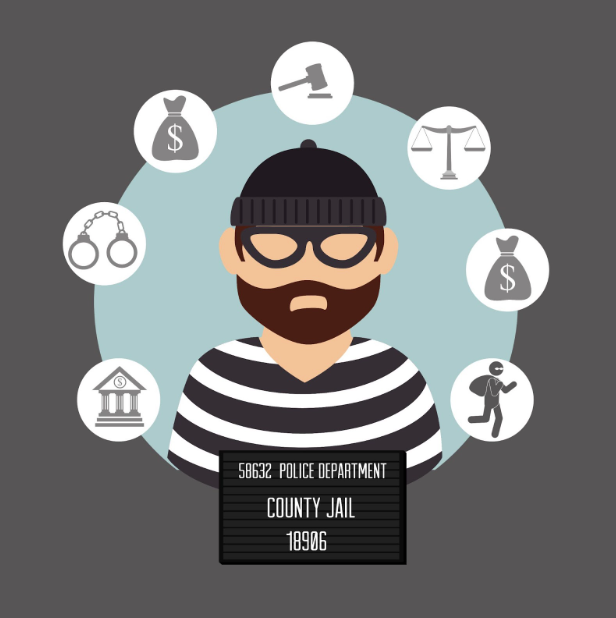How To Stop Piracy Of Your Online Content?

As we enter 2025, the threat of online piracy remains a significant challenge for digital creative endeavors, businesses, and all brands worldwide. Millions of dollars are lost yearly because of stolen content, illegal downloads, and sharing. Moreover, the best thing is that you do not need to accept piracy as an undeniable fact of online life; rather, you can seek effective ways to stop piracy.
This guide will cover what online piracy is, who is affected by it, and how to stop it.
What Is Online Piracy?
Digital piracy is the act of duplicating, resharing, or otherwise using copyrighted online material without proper consent, whether it is a movie, music, software, book, game, or even an online course.
In the early 2000s, piracy was primarily associated with torrent sites and shoebox CDs. Today, it has emerged into complicated structures, such as cyberlockers, file-allocation services, illicit streaming sites, and even social media pages that circulate stolen content to a large audience.
Duplicate websites copy paid content behind new paywalls, and make money off somebody else’s work. Thus, piracy exhausts livelihoods and can lessen cultural exports and originality.
Who Is Affected By Piracy?
No industry is left unaffected by piracy. Here are a few examples:
1. TV studios and films lose billions from box office and streaming revenue due to online movie piracy.
2. eBooks and audiobooks of original authors and publishers are pirated.
3. Software companies face their cracked versions that get distributed online.
4. Producers and musicians get their albums downloaded illegally.
5. Teachers and trainers have their paid online programs stolen and shared freely.
6. News publishers face issues of scraping, repackaged paywall articles.
Even if you are a freelancer or a global corporation, you have something that pirates want, your intellectual property.
Reasons Piracy Still Exists In 2025
In spite of technological growth and powerful laws, piracy is there because:
1. Online content is effortless to copy and share.
2. Some individuals think everything must be free for all.
3. Not all creators have the resources to administer and stop infringements.
4. It is not easy to impose cross-national borders.
5. AI integrates how stolen content can be reused, in other media.
What Are Different Ways To Stop Piracy Of Digital Content In 2025?
Here are six ways to stop piracy of your online content:
1. List Your Copyright
Your work is copyrighted the moment it is developed, but listing is a method to make not only the copyright, but also pursue safety through the courts, and impose it much more clearly. You can copyright your books, songs, music, videos, or software with your country’s copyright office. Apart from that, you can hold on to drafts, time stamps, and authentic files as proof of authorship. Also, you can gain from digital certificates or some blockchain timestamping for further safety.
2. Use Digital Rights Management (DRM) Software
The use of DRM software to safeguard the allocation and sale of digital media would ensure source protection for that content.
- DRM software verifies how your content is employed and distributed.
For videos, you can subscribe or go to streaming services that are powered by DRM, encoded, and remain tough to download.
- For eBooks, you can choose distribution mediums that offer an anti-copying solution.
- For software, you can share license keys and activation.
3. Put A Watermark On Your Content
- Visible or invisible watermarks are employed for tracking down illegal copies.
- Video creators can add logos or dynamic watermarks that connect content back to users who pay for it.
- Photographers can put a watermark on their images to stop them from being downloaded without consent.
- Specific watermarks are added into each course, linked to various student accounts.
All of these give pirates a pause and help you hold ownership of your work.
4. Use Online Monitoring Tools
You cannot stop what you are not able to see. Besides, you can even use any online tracking tool or subscribe to a copyright security service to:
- Look for websites, marketplaces, social media, and torrent websites for theft copies.
- Identify plagiarism or illegal sharing.
- Get quick notifications if your work is found somewhere it should not be.
5. Ardently Impose Your Rights
If you see stolen content, you cannot avoid it. Take action on it:
- Report or obstruct infringing posts on social media.
- Issue DMCA takedown appeals to web hosts, search engines, or broadcasters.
- Contact the website’s webmaster directly, and tell them to remove it.
- Impose penalty, if need be, on the third time you get repetitive offenders.
6. Inform Your Audience
Some individuals steal because it is easy, not because they wish to. Make it clear:
- Where your work can be lawfully bought or otherwise collected.
- How paying supports your constant creativity.
- Extend the word using your website, social media, and newsletters. The most trustworthy fan base is your topmost allies.
What Is The Future Of Anti-piracy?
The future of anti-piracy with powerful tools like AI-based content ID systems, blockchain-supported copyright registries, and automated takedown tools makes it easier than ever for creators to affirm their rights. Companies like Bytescare already provide end-to-end solutions which incorporate tracking, detection, and takedown into one platform. You do not have to fight alone, whether you are a content creator or a business holder.
Final Thoughts
Piracy has become one of the most significant issues affecting content creators worldwide. There are many ways to stop piracy to help protect your intellectual property rights. By protecting your digital content beforehand, you are safeguarding your revenue while also making sure that your work actually benefits you and not pirates, thus maintaining your brand’s strength.
It becomes inevitable for all creators to have a piracy protection plan in place. It starts with your rights, smart technology, tracking content, and imposing your claims. When content makers take a stand for their work, the online world gets somewhat fairer for everyone.


